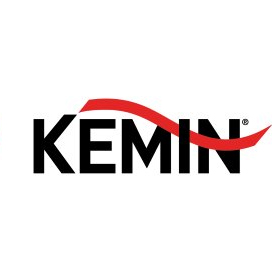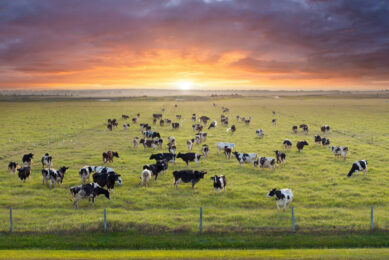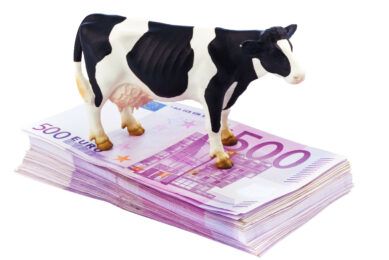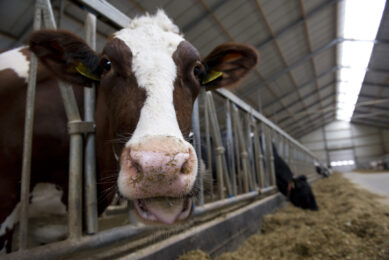Alleviating heat stress in ruminants
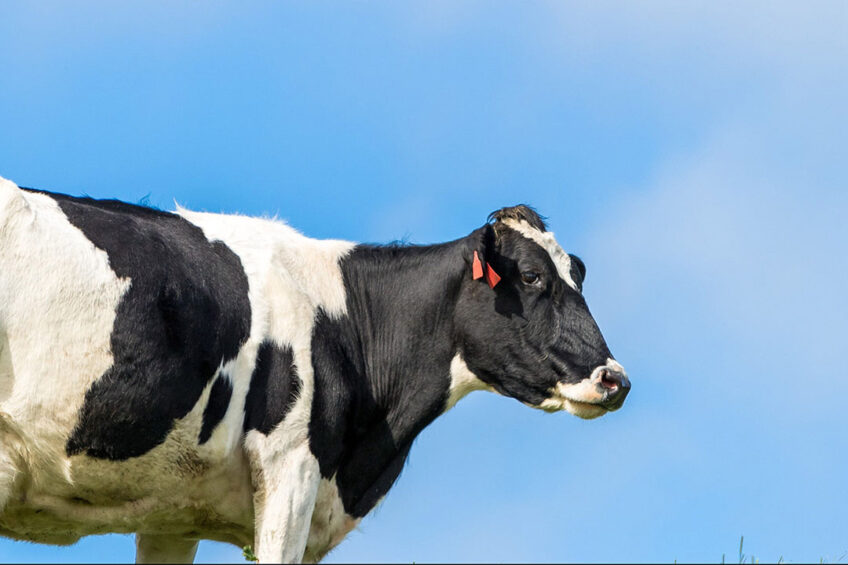
The ruminant market has been rapidly changing since the last decade — creating opportunities and challenges for those in animal production. Specifically, heat stress in ruminants is a large challenge in our field because of its negative impact on performance.
Serious consequences of heat stress
Kemin research has proven the following unfavourable effects associated with heat stress, namely:
- Negative impact on the normal physiological behaviour of that animal.
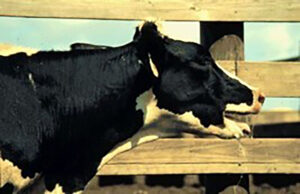
- Decreased dry matter intake, directly impacting the output of dairy animals.
- 20 to 25% reduction in dry matter intake.
- 40 to 45% milk yield decline.
- Reduced fibre digestion efficiency impacting ruminal acidosis.
- Oxidative stress: This will alter the endocrine status and nutrient absorption.
Loss of reproductive efficiency.
Kemin believes that it is critical to consider nutritional strategies that reduce the negative protein and energy balance associated with heat stress, allowing cows to maintain milk production and health. To mitigate the effects of heat stress, we must take two critical steps: overall health improvements and a proper nutritional strategy.
Routes to mitigating heat stress
There are two crucial routes to mitigate the effects of heat stress. It’s important to ensure:
– Overall health improvements
– Proper nutritional strategy
Both these routes are not only crucial during heat stress but are, in fact, essential during all stages of the animal’s life. Here’s a breakdown of both routes with recommended solutions:
1) Overall health improvements
Improving dry matter intake to sustain and enhance productivity during heat stress can be done through two strategies: supplementing Choline and balancing dietary cation-anion (DCAB):
Choline. Choline nutrition has received much attention recently due to its role in improving liver function. Besides higher production levels, Choline’s role in improving dry matter intake, immunity, and health creates a strong argument for increased provision of bioavailable Choline. We have seen that choline alters the plasma NEFA concentration increasing the export of hepatic fat. This results in less hepatic fat concentration and, therefore, improved liver functioning, leading to optimal dry matter intake.
Arshad et.al, (2020) conducted a meta-analysis of supplementing rumen protected choline on performance and health of parous dairy cows. They found 200 g dry matter intake prepartum and 500 g postpartum with improved body weight and body condition score.
Balancing dietary cation-anion (DCAB). Dietary cation-anion balancing (DCAB) improves dry matter intake in animals. When plasma calcium levels fall during hypocalcemia, rumination activity suffers. Rumination is characterised by a complex series of muscle contractions that bring a bolus of ingesta to the mouth for further mastication before swallowing it again. DCAB can overcome reduced rumination caused by hypocalcemia in pre-calving cows subjected to heat stress.
Santos et al. (2019) recently published a meta-analysis on 42 experiments, including 134 treatments with 1803 cows. The resulting equations from the statistical models predicted that reducing the Dietary Cation-Anion Difference (DCAD) from +200 to −100 mEq/kg would increase blood total calcium on the day of calving from 1.86 to 2.04 ± 0.05 mM, DMI postpartum 1.0 kg/d, and milk yield 1.7 kg/d in parous cows.
2) Proper Nutritional Strategy: Diets with rumen-protected amino acids (AA), Methionine, and Lysine
Effective nutritional management and proper ration formulation are vital and positively impact health and production, therefore mitigating the negative effects of heat stress in dairy cows. During heat stress, rumen and small intestine functionality are completely altered, affecting digestibility and feed efficiency, as well as metabolic adaptations to reduced intake and a reduction in endogenous heat produced to maintain gluconeogenesis.
That’s why precision feeding with Amino Acid nutrition, is crucial to reducing the effects of heat stress on animals. Formulating low-rumen degradable protein and also low-rumen undegradable protein diets along with meeting methionine (Met) and lysine (Lys) requirements reduces circulating insulin levels and improves both protein efficiency and the metabolic status of heat-stressed cows due to better AA utilisation.
The only feasible way to achieve the above is by improving the protein quality supply, increasing, the level of the first two limiting AA, Met, and Lys with an adequate energy level in diets.
One fact is clear — no matter the production level, temperature-humidity (THI) index, or ingredients used in the diet, we cannot cover the Met and Lys needs without using both rumen-protected Met and Lys.
Amino acids are proven to have the following benefits. They:
- Improve glucose production and utilisation.
- Reduce the negative energy balance (besides the negative protein balance) associated with heat stress.
- Reduce the oxidative stress maintaining the immune status.
- Improve antioxidant capacity, maintaining the immune status.
- Help us to create low heat increment diets.
- Enhance dry matter intake and energy-corrected milk under heat-stress periods.
- Restore the intestinal barrier after injury.
Conclusion
Two recently published meta-analyses on the supplementation of rumen-protected Choline and DCAB show that Choline and DCAB significantly improve dry matter intake, which is critical in optimising farm profitability.
Coupled with that, formulating with AA is one of the most cost-effective ways to support health and performance during all periods, including during heat stress.
Learn more about how to combat heat stress and its effects by clicking the links below.
Heat Stress Ruminants by Kemin EMENA
Improving the dry matter intake as crucial aspect in alleviating the impact of heat stress
Join 13,000+ subscribers
Subscribe to our newsletter to stay updated about all the need-to-know content in the dairy sector, two times a week.


